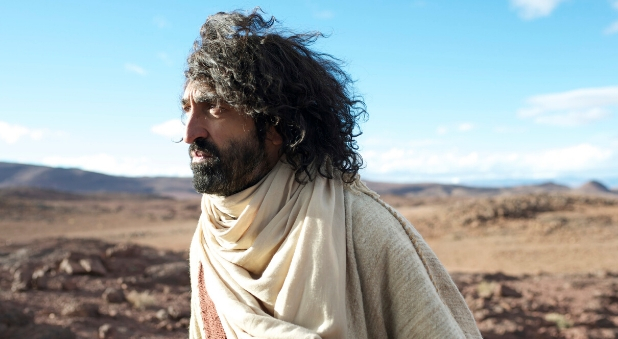If we had not understood the word “isolation” before now, then we have all had a heavy dose of this experience in the past month! The Government’s restrictions on movement have impacted us all, with the strong message: “Stay home!”.
While some will be working in essential services and able to leave their homes, the rest of us will only have the opportunity of leaving our residence for exercise, medical appointments or essential shopping. We can no longer “go” to church, but church comes to us in the confines of our living rooms, on TV screens or computers, as we experience a whole new way of gathering electronically. It is indeed a brave new world into which we have been plunged.
God created us to be together
God’s creative purposes for humankind were always societal and communal – “It is not good for the man to be alone” (Genesis 2:18). Therefore it is no wonder that we are feeling strange in isolation. However, isolation is not new for the people of God, although it is usually experienced in times of grief or even times of chastisement.
The first people to be isolated, of course, were Adam and Eve, when God cast them out of the Garden of Eden due to their disobedience. They were isolated from the pristine environment that God had provided, symbolised by their being denied access to the tree of life (Genesis 3:24). Yet God was still with them. Their absence from the Garden did not mean absence from God.
Adam and Eve were the first people to be isolated
Elijah experienced two episodes of isolation. The first was at God’s direction when he went to the brook Cherith in the time of Israel’s drought. There for more than two years he was fed bread and meat by ravens and was refreshed by the waters of the brook. But he had no human contact. We don’t even know if he had copies of the five books of Moses, or some psalms of David. Perhaps he knew these by heart and, like the author of Psalm 1, he “meditated on God’s law day and night”. However, God was with him even in his loneliness and extreme “social distance” from other humans.
The other occasion for Elijah was of his own doing, when he “ran for his life” as he fled from Ahab and the threat of Jezebel’s wrath. I have always found this a strange response from Elijah after his triumph at Mount Carmel, and so shortly after God’s protection and provision for his sustenance during the years of drought. Yet, there he is, fleeing to the desert – all alone.
Elijah knew God was with Him
Of course, God is still with him and he knows it, for he beseeches God: “I have had enough, LORD, take my life” (1 Kings 19:4). In response, God sends his angel to Elijah to refresh him for a journey to Mount Sinai, the place where God’s covenant with Israel was established. There, in the aloneness of a cave on the mount of God, he hears in a gentle whisper the voice of his maker and fresh instructions are given him for his prophetic ministry. God still had work for him to do.
God was with Elijah in his solitary journey of 40 days and 40 nights to Mount Sinai, just as God was with Moses on the same mount for 40 days and 40 nights. It is not coincidental that our Lord went alone into the wilderness for 40 days and 40 nights.
Each of the Synoptic Gospels record Jesus’ being led by the Holy Spirit for this time of testing by the Devil. Yet in this isolation from human contact, the triune God with his holy angels communed together (Mark 1:13). Here, where Elijah had failed, Jesus succeeded. In the face of temptation, Jesus never wavered. As Son of Man his confidence in God’s enabling by his Spirit was his surety; as the Son of God his trust in God’s word was the foundation of his obedience. He could therefore confound the attacks of the Devil by citing the promises of God’s word, in the knowledge that God was with him.
Did God ever abandon Jesus?
It is sometimes thought that God abandoned Jesus on the cross, leaving him alone. Yet this is not true. In the upper room Jesus predicted his disciples’ desertion, knowing that they would leave him all alone, “Yet,” he says, “I am not alone, for the Father is with me” (John 16:32). Jesus’ cry of being forsaken on the cross was not abandonment, but rather judgment. He who was the beloved had simultaneously become the accursed. He who knew no sin, became sin for us (2 Corinthians 5:21). That is the mystery of the cross and the fountain of our salvation.
Therefore we are never alone. Despite the social restrictions that we suffer, despite feeling all alone in our homes – especially those who do live alone – our God is with us. He is our Immanuel. For nothing can separate us from the love of Christ: not tribulation, distress, persecution, famine, nakedness, peril nor Coronavirus!
We are never alone
Let us therefore use this isolation to reflect more deeply upon God’s word, as Moses and Elijah did on Mount Sinai, and as Jesus did in the wilderness. We may have more than 40 days of isolation but we have an ever-present God, whose Son is with us by his Spirit both now and into eternity.























